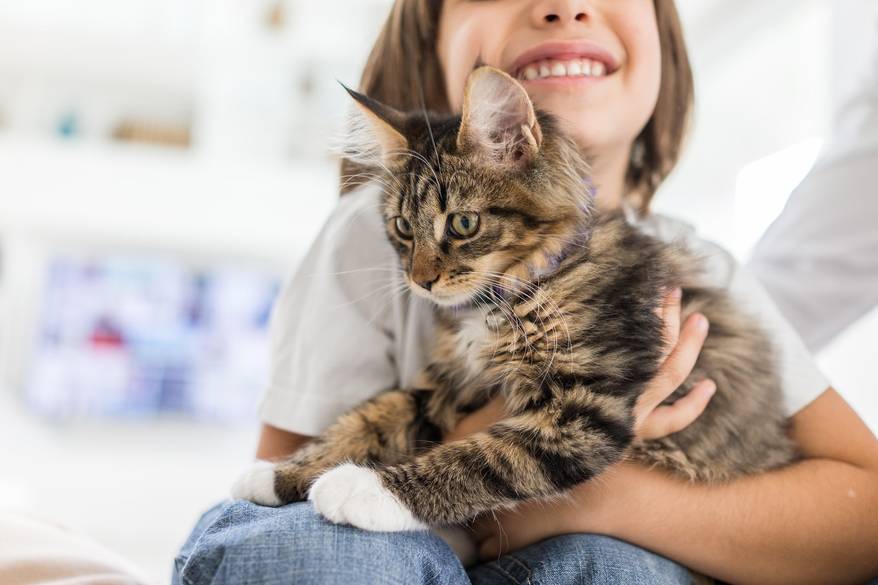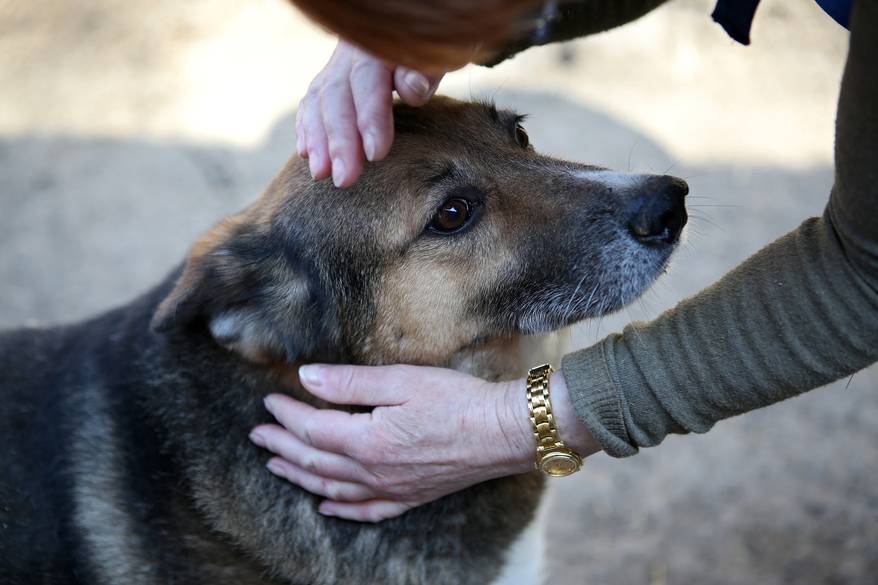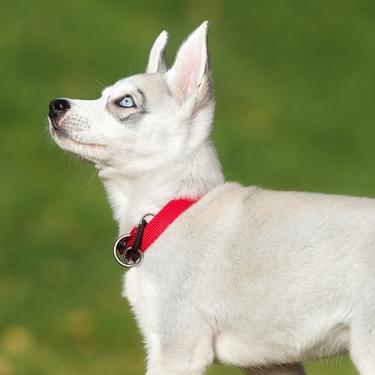
-
Find the right food for your petTake this quiz to see which food may be the best for your furry friend.Find the right food for your petTake this quiz to see which food may be the best for your furry friend.Featured products
 Hill's Science Diet Adult Chicken & Beef Entrée Dog Food
Hill's Science Diet Adult Chicken & Beef Entrée Dog FoodChicken & Beef Entrée in a delicious loaf with complete & balanced nutrition to help keep adult dogs active and healthy
Shop Now Adult Chicken & Barley Recipe Dog Food
Adult Chicken & Barley Recipe Dog FoodSupports lean muscle and beautiful coat for adult dogs
Shop Now Adult Large Breed Chicken & Barley Recipe Dog Food
Adult Large Breed Chicken & Barley Recipe Dog FoodSupports healthy joints, lean muscle, and beautiful coat for large breed dogs
Shop NowFeatured products Adult 7+ Indoor Chicken Recipe Cat Food
Adult 7+ Indoor Chicken Recipe Cat FoodSupports energy level and beautiful fur in mature indoor cats
Shop Now Adult Turkey & Liver Entrée Cat Food
Adult Turkey & Liver Entrée Cat FoodPrecisely balanced nutrition with the delicious taste of minced turkey & liver to help fuel the energy needs of cats during the prime of their life
Shop Now Senior Vitality Adult 7+ Tuna & Vegetables Stew
Senior Vitality Adult 7+ Tuna & Vegetables StewImproves Everyday Ability to Get Up & Go
Shop Now -
Dog
- Dog Tips & Articles
-
Health Category
- Weight
- Food & Environmental Sensitivities
- Urinary
- Digestive
- Joint
- Kidney
-
Life Stage
- Puppy Nutrition
- Adult Nutrition
- Senior Nutrition
Cat- Cat Tips & Articles
-
Health Category
- Weight
- Skin & Food Sensitivities
- Urinary
- Digestive
- Kidney
-
Life Stage
- Kitten Nutrition
- Adult Nutrition
Featured articles The Science Behind Our Love for Pets
The Science Behind Our Love for PetsLearn the scientific reasons why we have such strong connections with our pets, and what science says about the love between humans and our furry friends.
Read More What Is Littermate Syndrome? Pet Adoption Guide
What Is Littermate Syndrome? Pet Adoption GuideLearn more about littermate syndrome in dogs and cats and how to successfully navigate adoption and early socialization processes.
Read More How to Properly Mix Wet & Dry Pet Foods
How to Properly Mix Wet & Dry Pet FoodsAn Orange cat eating from a bowl filled with mixed food
Read More -


If you're thinking about getting a new pet, consider adopting from a shelter. Not sure how to find your new best friend? Many animal centers employ a pet adoption counselor who can be sure you're matched with the right pet.
An animal adoption counselor is specially trained and passionate about making sure pets are matched to the right homes. People who work in this role also work with families and potential pet parents to equip and prepare them for any special needs or personality quirks their chosen pets might have, as well as the day-to-day demands and realities of pet ownership.
From Child Cat Trainer to Professional Animal Behaviorist

Kayla Fratt is an animal behaviorist and dog trainer who was formerly an animal behavior technician and pet adoption counselor at Denver Dumb Friends League (DDFL). Kayla's dedication to animals began at a young age, when she applied her would-be animal trainer skills to teaching her cat to sit and the family chickens to come when called.
She spent time working in zoos and earned a degree in biology with an emphasis on animal behavior. While she was still a student, Kayla started her own dog training business, Journey Dog Training, which she still runs today. Today, Kayla is an Associate Certified Dog Behavior Consultant with the International Association of Animal Behavior Consultants.
A Matchmaker Bringing Families Together
In her animal adoption counselor role at DDFL, Kayla spent 60 to 70 percent of her time training dogs and cats to prepare them for adoption. The rest of the time, she worked to educate potential pet parents about the animals available for adoption at the shelter and about any behavioral concerns they might encounter with each pet. She worked hard to match each pet to the right home. Kayla says, "I really love the opportunity to match people with pets and educate the owners prior to the animals even coming home."
Kayla's experience as a dog trainer helped prepare her for this role. "When working as a trainer, I generally only get called once there's a problem. I specialize in working with behavior concerns — fear, aggression, reactivity — so I often only meet the dog and owner when their relationship is already tenuous. The people are frustrated and exhausted, and the dog is generally really stressed."
While her work as a trainer is rewarding, Kayla found satisfaction in the more preventative aspects of adoption counseling. "I can really set the family and dog up for success from Day Zero, whether that's by helping direct a family to a better fit to their home personality-wise, or just helping a couple understand what living with a former puppy mill breeder will be like."
An Active Listener
The job of a pet adoption counselor requires a lot of empathy as well as active listening skills. "I found that my skills as a communicator were much more important than my skills as an animal handler on most days," says Kayla. "It's hard to tactfully tell someone that a specific pet might not be the right fit for their home, and it's also hard to see the perfect home for a pet decide that it's not the right time."
Even so, she enjoyed putting her people skills to good use. "I was a dog trainer for several years before taking this job, and I knew that I wanted to keep working with the human half of the equation, as well."


Tasty Tips
Young pets may need several visits in their first year for vaccinations. Adult pets generally benefit from annual check-ups, while senior or special-needs pets might require more frequent visits.
A Day in the Life of a Pet Adoption Counselor

Kayla's role at DDFL involved a lot of research and preparation. She spent much of her time working with the animals to prepare them for adoption, but she had to be ready to switch gears from trainer to counselor on short notice.
"Every time a patron wanted to adopt a dog or cat that the behavior team had worked with, I was paged on the radio. I'd end my training session at a good place, and go to read up on the animal." After studying the dog or cat's history and care requirements, Kayla would outline the pet's needs and list her concerns about their care. "I then sat down to ask the potential adopters what they were looking for, what they saw in this animal, and what they were expecting as far as work. I then guided them toward understanding what this animal needed, or, if needed, I helped them find a pet that was a better fit."
Unfortunately, though, all of Kayla's hard work on behalf of the animals didn't always pay off the way she hoped. "There were times that an animal I loved went home with someone I didn't love," she says. "There were times that I had a bad feeling about an adoption, and then the dog or cat was returned hours, days or months later. Either way, that is always really hard."
But despite its challenges, the job was also full of rewards. "I loved helping adopters understand what their animals needed. Since I worked primarily with our behaviorally 'needy' pets, I was often explaining how to react when a dog growls, how to redirect a cat that tends to bite, or how to coach a pet over its phobias and fears. It was amazing to see people light up when they 'get it.'"
Ellen: A Success Story
One of Kayla's favorite adoptions that she had a hand in was that of Ellen, an 8-year-old shar pei mix from a shelter in Texas. Ellen had a number of issues, including arthritis, hip dysplasia and a lack of proper house training.
"She spent weeks on the adoption floor," says Kayla. "She just wasn't all that visually striking, and she was going to be a lot of work." But the staff at DDFL didn't give up on Ellen, and she was eventually adopted by an older woman who was ready to take on the challenge. "She sent the staff several updates per month for a long time, giving us updates on Ms. Ellen's progress. We really worried a lot about Ellen, but she managed to find one of the few homes in Denver that was really up for her challenges!"
An Important Link
Choosing a new pet can be fraught with uncertainty, and potential pet parents who don't choose carefully might find themselves in over their heads with a pet who needs more specialized care than they were prepared to provide. Adoption counselors can help alleviate that uncertainty and make sure adoptive pet parents are paired with pets that fit their personalities and lifestyles.
"The adoption counselors generally really know the animals they're working with. They know the animal's history, its needs, and what its past concerns were. This really helps them have a good idea of what the ideal home is for an animal," says Kayla, who has written a dog adoption checklist for K9 of Mine to help prospective pet parents prepare for choosing a new pet.
"The reality is, you might not be the perfect home for that pet — and they might not be exactly what you're looking for. Having someone there to help you is really helpful, because these decisions can be hard to look at with a critical eye."
Kayla calls pet adoption counselors the most important link in the chain when it comes to choosing the right pet. "We care a lot, and will spend the time you need to find the right pet!"
So, if you're interested in adopting a new pet, it's okay to look on the shelter's website, but remember to speak to adoption counselor if one is available first. They will be able to understand your wants and your needs and help you decide if the pet you liked online is actually a good fit for you. What you don't want is to go and fall in love with a pet at shelter and later have them tell you that that pet is not ideal for you and your situation. What's even tougher is finding out too late because bringing a pet back to the shelter after adoption is never a good situation for anyone.


Jean Marie Bauhaus is a pet parent, pet blogger, and novelist from Tulsa, Oklahoma, where she usually writes under the supervision of a lapful of fur babies.
Related products

Supports lean muscle and beautiful coat for adult dogs

Supports healthy joints, lean muscle, and beautiful coat for large breed dogs

Chicken & Beef Entrée in a delicious loaf with complete & balanced nutrition to help keep adult dogs active and healthy

Chicken & Barley Entrée in a delicious loaf with great taste and precisely balanced nutrition to support 5 essential building blocks for lifelong health
Related articles

An Orange cat eating from a bowl filled with mixed food

Understanding how to train puppies and kittens starts with understanding their differences. Discover tips for training success for puppies vs. kittens.

Learn the scientific reasons why we have such strong connections with our pets, and what science says about the love between humans and our furry friends.

Learn more about littermate syndrome in dogs and cats and how to successfully navigate adoption and early socialization processes.

Put your pet on a diet without them knowing
Our low calorie formula helps you control your pet's weight. It's packed with high-quality protein for building lean muscles, and made with purposeful ingredients for a flavorful, nutritious meal. Clinically proven antioxidants, Vitamin C+E, help promote a healthy immune system.
Put your pet on a diet without them knowing
Our low calorie formula helps you control your pet's weight. It's packed with high-quality protein for building lean muscles, and made with purposeful ingredients for a flavorful, nutritious meal. Clinically proven antioxidants, Vitamin C+E, help promote a healthy immune system.

